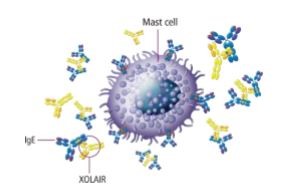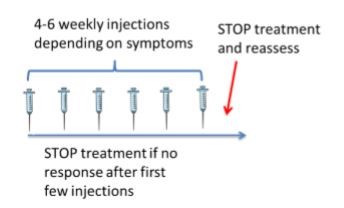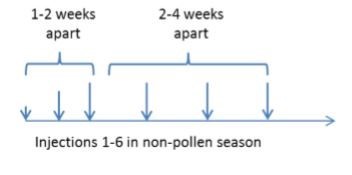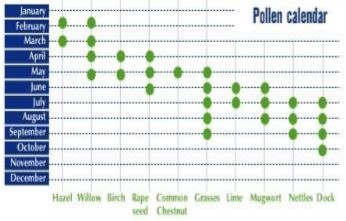Introduction
You have been referred for investigation of a suspected allergy. As part of this investigation, you may be offered an oral challenge. This leaflet aims to tell you what to expect.
What is an allergy?
Adverse reactions to foods can be allergic and non-allergic (intolerance). Allergic reactions are caused by the immune system.
What happens after I have had a reaction?
You will be referred as an outpatient to a centre specialising in allergy, where you may have a blood and / or skin prick test. This can help to identify what caused your reaction. If your test results are positive, you will be advised to avoid that particular food.
Often if the reaction was typical of an allergic reaction you may be advised to avoid that food, even if the test results are negative.
If the symptoms were not typical, the tests were negative and you would like to reintroduce that food back into your diet, then a ‘challenge’ may be offered.
A challenge is the best way to determine how you will react to a particular food.
What happens in a challenge?
An appointment will be made for you to attend the allergy challenge clinic.
The challenge is performed in hospital, in order that you can be closely monitored. You will be asked to bring with you the food that may be causing your reaction. You will be asked to sign a consent form.
You may have an allergy skin prick test prior to the challenge.
Increasing amounts of the food are given over time, with close observation for reactions. Observations may include pulse, blood pressure and peak flow (a breathing test).
The exact duration and number of stages will depend on previous reactions and symptoms during your test, but typically a challenge to a food will take 2 - 3 hours.
The amount of food required will vary, but the aim is to have taken a sufficient quantity to exclude allergy.
After the final amount, you will be observed for at least 1hr before you can be discharged.
Challenges carry a risk. If you have any symptoms, however mild, let the doctor or nurse know. We can then treat the symptoms quickly and prevent the reaction progressing. A cannula may sometimes be placed in a vein. Such symptoms usually occur within an hour of exposure to the food. The allergy team will write to your GP advising them of the outcome.
What kind of reaction may I have?
The most common reactions are:
- Flushing or rash
- Itching
- Lip swelling and facial swelling
Less common reactions are:
- Wheezing
- Itchy watery eyes and nose
- Nausea
- Rarely more severe reactions can occur causing faintness and anaphylaxis.
What happens if I react to the food?
The challenge will be stopped and treatment given if necessary.
Rarely ward or emergency department admission may be required if a severe reaction occurs, in order to monitor you closely and provide additional treatment.
You will be advised to avoid this food in the future.
What do I need to do before the challenge?
- Bring the food for the challenge
- Stop taking anti-histamines for 5 days before appointment
- Avoid aspirin or similar non-steroidal anti-inflammatory drugs on day of the challenge
- Expect to be in outpatients for the majority of the morning
- If possible bring someone with you
- Eat and drink normally prior to the challenge
Inform a member of the immunology team if you:
- are taking prednisolone
- are taking beta blockers eg atenolol
- are unwell
- have asthma and are using your blue inhaler more frequently
What happens if I become unwell after I leave hospital?
Treat reactions according to your management sheet
Make a note of the symptoms and when they happened and let the immunology team know
Further Information
AllergyUK www.allergyuk.org 01322 619898
The Anaphylaxis Campaign 1 Alexandra Road Farnborough Hampshire. GU14 6BU 01252 542029 www.anaphylaxis.org.uk
The MedicAlert Foundation 1 Bridge Wharf 156 Caledonian Road London N1 9UU Monday to Friday 9am to 5pm Freephone 0800 581420 (UK) or 1800 581420 (Ireland) Fax 020 7278 0647 info@medicalert.org.uk www.medicalert.org.uk




